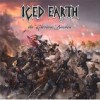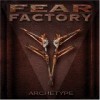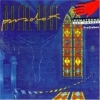The Modern Witch Conspiracy
 Or get MP3s. | Buy these at Amazon.com Click Images to Buy CDs |  Or get MP3s. |
Labels: conspiracy, evil, future, generations, history, modern, morals, society, The Devil (figure), witches

R.G. Male is a writer of horror, sci-fi, and miscellaneous dark fiction. See his chaos of thoughts on his craft, the industry, and his favourite hobby, pen and paper Role-Playing Games. Not to mention general train of thought.
 Or get MP3s. | Buy these at Amazon.com Click Images to Buy CDs |  Or get MP3s. |
Labels: conspiracy, evil, future, generations, history, modern, morals, society, The Devil (figure), witches
 Or get MP3s. | Buy these at Amazon.com Click Images to Buy CDs |  Or get MP3s. |
Labels: character, future, Game Master, magic, mood, research, role-playing games, simulation, spells, Tags: advancement
 Or get MP3s. | Buy these at Amazon.com Click Images to Buy CDs |  Or get MP3s. |
Labels: contrast, deleted scenes, future, mood, role-playing games, rules, vampire, writing
People put on airs, hide behind facades and are a mix of layers that have varying amounts of transparency, even when "viewed" from the inside. What happens when all of the obfuscation is ripped away? What happens when a complete stranger knows more about a person than the person knows about themselves? There's a quintessential quote that says roughly if we knew what everyone around us was thinking would we go crazy or would we be driven to kill each other. Sort of sounds like go crazy or go crazy. Of course such a simplification doesn't indicate when this obviously involuntary sharing of thoughts occurs and seems to be predicated on this situation's sudden appearance. Even then it's hard to justify the results suggested.
 | Buy these at Amazon.ca Click Images to Buy |  |
Labels: future, hero, horror, precognition, psychic, setting, story, villain
Since it has become one of the driving forces in all of my writing from the RPG material, to the horror short stories and novels, I thought that today I would talk about the affect of changing the time period in which the story takes place. For my first novel I started with a certain amount of work already done. The work was short and it was rough, but it was highly detailed. It was set in the modern day—at the time that was the early 90’s. When I sat down to turn this into a novel I asked myself a very important question. What can I do to really punch this story up and make it sing? Really crystallize the horror and heighten it.
 | Buy these at Amazon.ca Click Images to Buy |  |